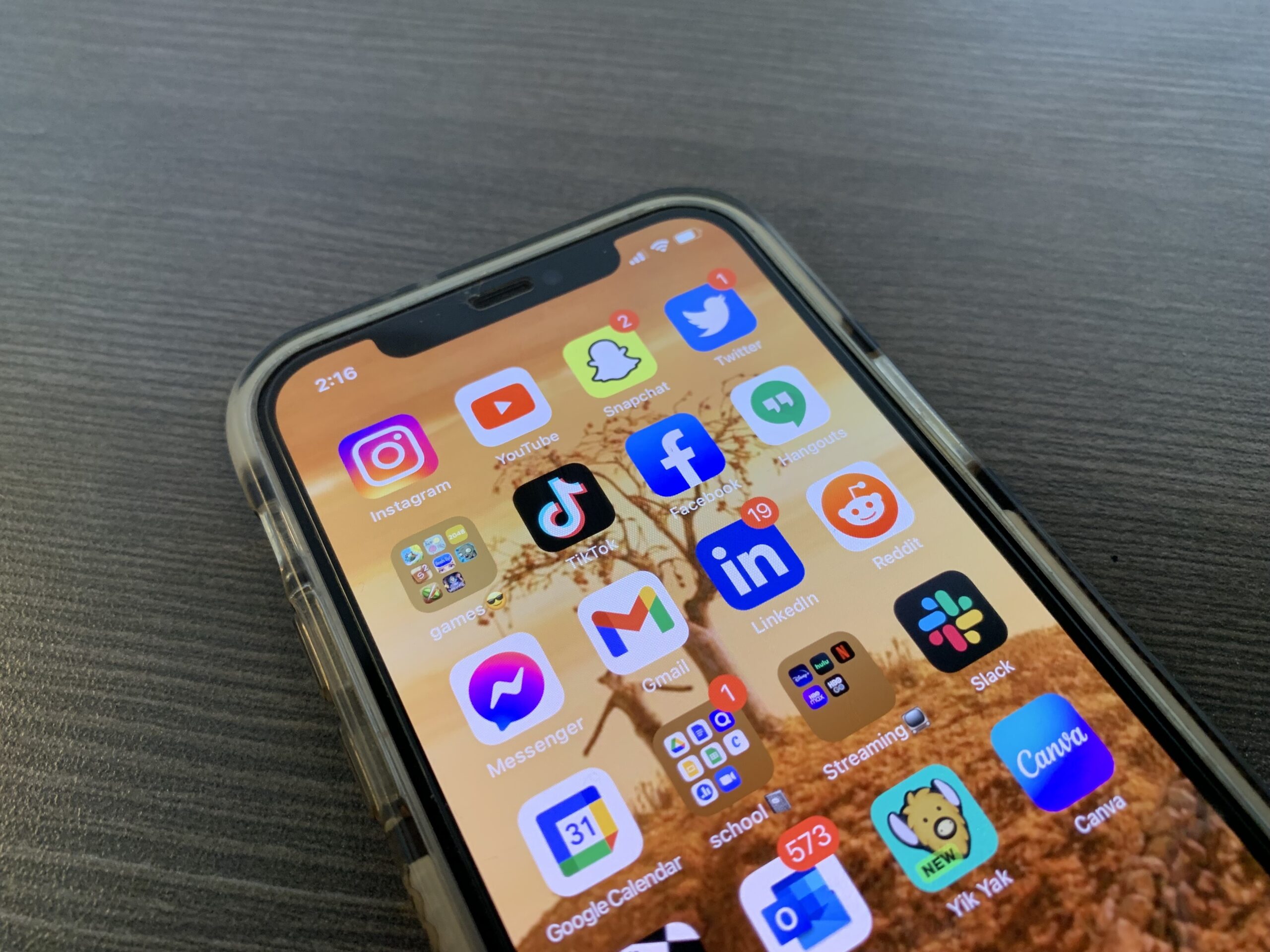UNC is creating a new research center to examine long-term effects of technology and social media on social and emotional development.
This new UNC research center stems from a $10 million gift from the Winston Family Foundation. The Winston National Center on Technology Use, Brain and Psychological Development aims to explore the correlation between tech use and mental health symptoms.
The Winston National Center expands on the initial Winston Family Initiative in Technology and Adolescent Brain Development, which began in 2018. That project studied the correlation of increased device use and addiction.
Mitch Prinstein, a UNC psychology professor, is serving as a co-director of the new research center and recently told 97.9 The Hill researchers are specifically focusing on one demographic.
“We are looking at particularly why kids are using social media,” Prinstein said. “If they’re comparing themselves to others, or if they’re answer a lot of things that have been liked, [whether] that’s changing their brains. Research is showing that kids’ brains are vulnerable in a really unique way as they become adolescents.”
Children are on their phones a lot. A Pew Research Center study found 71 percent of parents with a child younger than 11 were concerned that their child might spend too much time in front of screens. Research from Statista in 2020 saw 63 percent of parents say their teenager spent more time online than before the pandemic began.
Prinstein said some kids even pick up their phones more than 200 times a day.
As the prevalence of children engaging with social media continues to rise, the impact on their mental well-being becomes a pivotal concern. The constant comparison to others and the quest for validation through likes may be molding the very fabric of their developing brains.
In this context, understanding psychological types emerges as a cornerstone in unraveling the complexities of personality psychology. Recognizing these patterns can empower parents and educators alike to foster a healthier digital environment, acknowledging the unique psychological needs of each child.

According to Prinstein, some children are spending more than eight hours a day on their phones. (Jack Carmichael / Chapelboro.com)
“They’re spending up to eight hours of time on their phones,” Prinstein said. “What we’re now seeing is that when they see content, even dangerous or illegal content, and they see a lot of likes attached to it, [there is] a deactivation of the prefrontal cortex and that’s the brain’s brakes.”
He said the brain starts to equate a ‘like’ on social media with positive connotations – even if the content liked is dangerous.
Despite the negatives of social media, Prinstein acknowledged social media does have positive effects for some children.
“We see kids who don’t feel a sense of community or belonging in their real life environment can find some really helpful support and community in their online kind of environment,” Prinstein said.
Unfortunately, that can also have drawbacks. Kids are sometimes exposed to harsh and severe discrimination toward racial, ethnic, sexual and gender minoritized groups. Prinstein said this can lead to new and even expanded problems in social media use.
“That’s having an effect on their risk for depression and anxiety above and beyond the experiences they’re having offline,” Prinstein said. “We’re also seeing kids being exposed to posts and websites that are actually instructing them how to engage in dangerous behaviors like cutting or weight-related behaviors and telling them to keep those concerns away from their parents.”
Center leadership also created a new handbook on technology use and adolescent development. The handbook has already been cited in several congressional bills as future legislation is developed to create mandatory training in schools for social media.
Prinstein advised users to understand that social media can be a great place to have fun, interpersonal interactions with friends but to remember it was not designed to help kids foster adaptive relationships.
“It’s created to develop profit,” Prinstein said. “There might be forces that are trying to keep them on there and try to keep them really addicted to getting likes, getting followers and engaging in behaviors for those purposes. It might help them remember that there may be getting sucked into behaviors that they don’t need to be engaging in to meet their own goals which might just be to hang out with their friends online.”
In addition to establishing the center, The Winston Family gift created the first endowed professorship in the UNC Department of Psychology and Neuroscience.
Chapelboro.com does not charge subscription fees, and you can directly support our efforts in local journalism here. Want more of what you see on Chapelboro? Let us bring free local news and community information to you by signing up for our biweekly newsletter.



